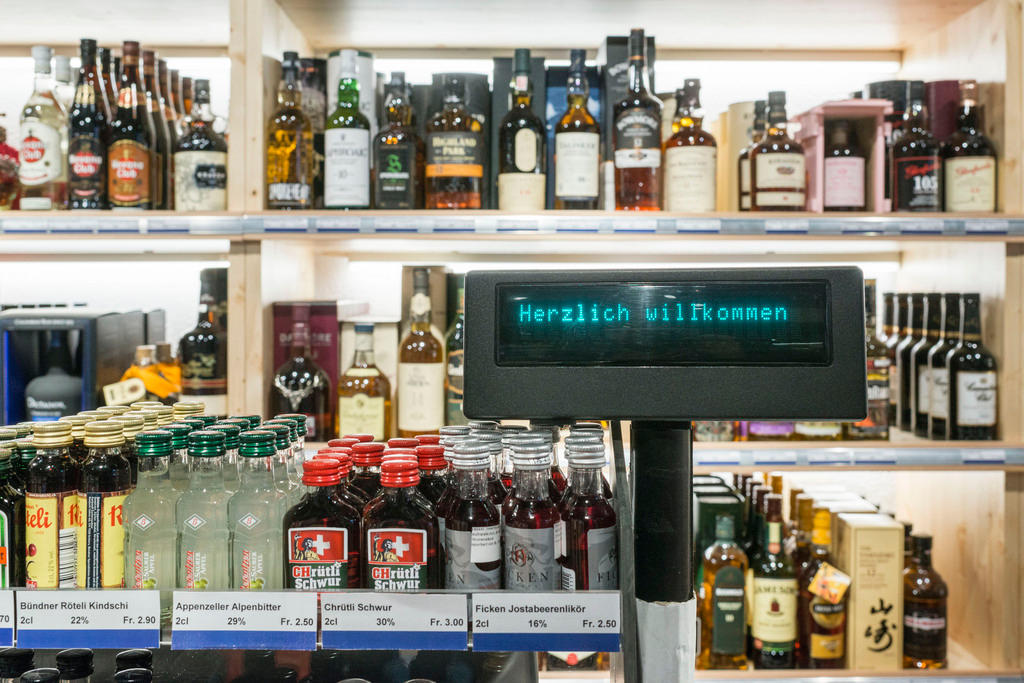
Addiction experts call for ‘brave measures’ from politicians

Switzerland’s low regulation and high purchasing power offer ideal conditions for buying or consuming drugs, according to national research centre Addiction Switzerland.
“Illegal substances can be found in cities quickly and relatively easily,” it said on Tuesday in its Addiction PanoramaExternal link for 2019, which gives an overview of the consumption of addictive substances. “Legal products are also everywhere and cheap. They can be bought around the clock on almost every street corner, in shops, petrol stations, vending machines, kiosks, casinos and online.”
Every year problems linked to dependency – either of substances or gambling – result in more than 11,000 deaths and social costs of around CHF14 billion ($14 billion), it said.
Addiction Switzerland said providers of alcohol, tobacco and gambling successfully lobbied parliament and the Federal Council, Switzerland’s executive body, against increased market regulation. Health experts called for “brave measures” such as banning the cheapest products, less advertising and shorter opening times of shops.
Alcohol sales benefit from a particularly liberal regulation, the organisation said, adding that it would be possible to reduce alcohol-related problems by raising prices, “but political will seems to be lacking, while the social costs of alcohol are estimated at just over CHF4.2 billion a year”.
The same goes for tobacco, where the number of smokers has remained at just over 25% of adults for the past seven years. Tobacco is responsible for almost 9,500 deaths a year in Switzerland, where 9.6 billion cigarettes were sold in 2017.
Cannabis, cocaine and heroin
Cannabis remains the most consumed illegal substance. Although Switzerland changed its laws in 2011 to let adults buy and use cannabis with up to 1% tetrahydrocannabinol (THC), the cultivation, consumption and sale of cannabis with a THC content over 1% is banned. Given reforms of cannabis law internationally, for example in North AmericaExternal link, Addiction Switzerland urged the development of regulation adapted for Switzerland.
Some five tonnes of cocaine are consumed each year with revenues of around CHF330 million. This arrives mainly from West African networks, the organisation noted. Heroin is imported and sold mainly by Albanian groups, with the quantity in circulation estimated at 1.8-2.5 tonnes a year.

More
‘Drug atlas’ shows hotspots of addiction in Switzerland

In compliance with the JTI standards
More: SWI swissinfo.ch certified by the Journalism Trust Initiative



























You can find an overview of ongoing debates with our journalists here . Please join us!
If you want to start a conversation about a topic raised in this article or want to report factual errors, email us at english@swissinfo.ch.